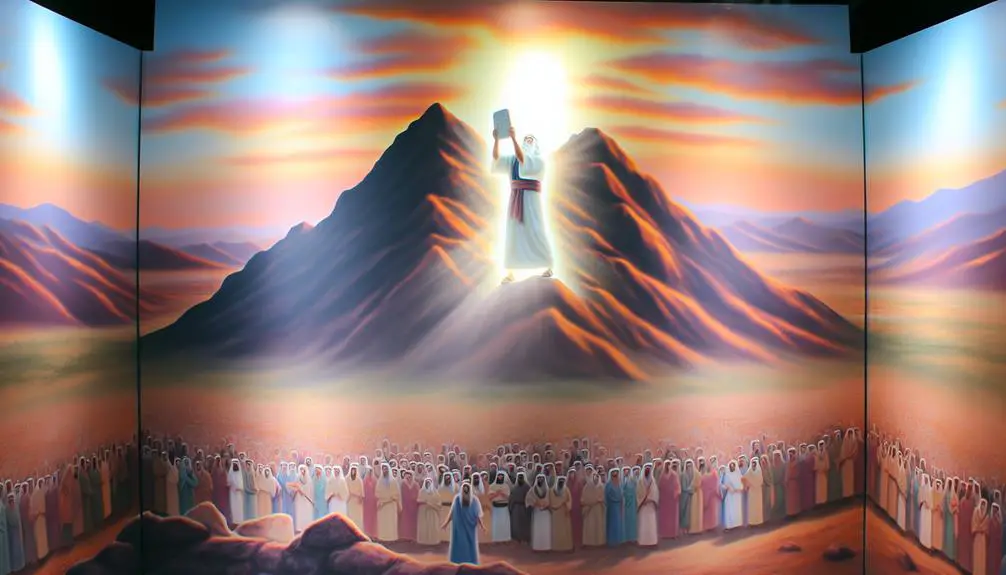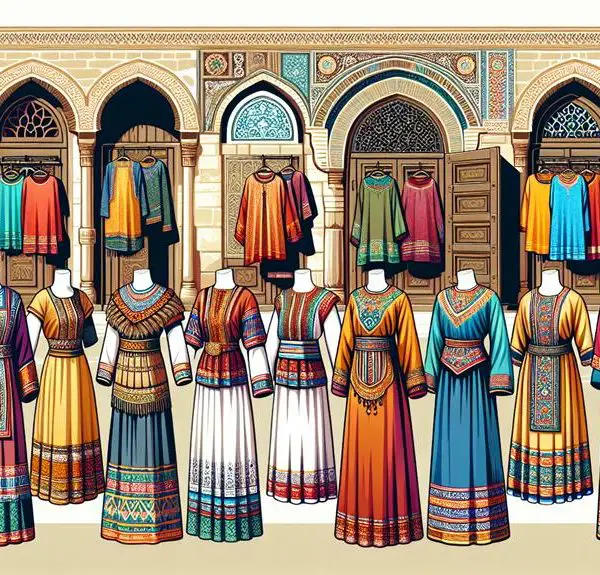Discover how mountains in the Bible serve as silent witnesses to divine moments, inviting you to explore deeper mysteries within the sacred text.

Mountain Verses in the Bible
In the tapestry of the Bible, mountains stand as towering witnesses to pivotal moments in the divine narrative. You'll find that each of these peaks, from Sinai to Calvary, isn't just a backdrop but a character in its own right, echoing with covenant, prophecy, and redemption.
As you explore these mountain verses, you'll uncover how they shape the spiritual landscape of the text, offering peaks of insight into God's relationship with humanity. The journey through these verses promises to be as revealing as it is inspiring, leaving you on the brink of understanding the monumental role these mountains play in the biblical saga.
Key Takeaways
- Biblical mountains are significant, marking pivotal moments in religious history and identity.
- Each mountain symbolizes a different aspect of faith, from salvation to divine power and sacrifice.
- The geography of these mountains underscores the gravity of the events and revelations that occurred there.
- These mountains serve as metaphors for spiritual truths, reflecting on themes of faith, hope, and redemption.
Mount Sinai: Covenant and Law

At the heart of the biblical narrative, Mount Sinai stands as a pivotal location where God delivered the Covenant and Law to the Israelites, shaping their identity and religious practices. Sinai's geography, characterized by its remote and rugged terrain, symbolically underscores the solemnity and isolation necessary for such a foundational encounter between God and His people. This desolate backdrop emphasizes the gravity of the moment, setting the stage for a transformative experience.
Under Moses' leadership, the Israelites' journey to Mount Sinai becomes a critical turning point. Moses, acting as both guide and intermediary, facilitates the pivotal exchange between the divine and the mortal. His role is instrumental in not only receiving the Law but also in ensuring its transmission and acceptance among the Israelites. This dynamic illustrates a key aspect of religious leadership: the ability to bridge the gap between the transcendent and the everyday.
The events at Mount Sinai, thus, aren't merely historical footnotes but are central to understanding the development of Jewish religious identity. They encapsulate the moment when the Israelites are given a new framework for understanding their relationship with the divine, underpinned by Sinai's imposing geography and Moses' decisive leadership.
Mount Zion: Symbol of Salvation
Transitioning from the rugged terrains of Sinai, Mount Zion emerges in biblical narratives as a profound symbol of salvation, encapsulating the aspirations and spiritual fulfillment of the faithful. Situated within the heart of ancient Jerusalem, Zion's geography isn't just a backdrop but a central character in the unfolding story of redemption. It's here, on this sacred hill, that the narrative of God's people takes a decisive turn towards the promise of eternal peace and deliverance.
Jerusalem's significance, intertwined with Mount Zion, transcends mere historical or geographical importance. In the scriptures, Zion becomes synonymous with a spiritual haven, a place where salvation isn't just promised but manifested. The prophets Isaiah and Joel, among others, extol Zion as the ultimate destination where God dwells among His people, offering refuge and salvation.
Analyzing the texts, you'll find that Mount Zion isn't just a physical location but a theological concept representing God's unbreakable covenant with His people. It's a beacon of hope, signaling that amidst the world's tumult, there's a steadfast promise of salvation for those who seek refuge in the divine. Through Zion, the Bible conveys a message of enduring faith and the ultimate triumph of salvation over despair.
Mount Carmel: Prophetic Triumph

Mount Carmel stands as a dramatic stage where the power and faithfulness of God were showcased, marking a pivotal moment of prophetic victory in biblical history. This event, centered around Elijah's challenge to Baal's prophets, isn't only a narrative of divine triumph but also a profound lesson in faith and the consequences of idolatry.
Elijah's bold proposition to the prophets of Baal to call upon their god to ignite a sacrifice, juxtaposed with his own invocation to the Lord, serves as a critical study in the power of true faith versus the emptiness of false worship. The subsequent divine fire that consumed Elijah's offering left no doubt of the Lord's supremacy, leading to a decisive victory over Baal's prophets.
- The silence of Baal contrasted with the overwhelming response from God evokes a deep sense of awe.
- Elijah's unwavering faith amidst widespread apostasy inspires courage.
- The dramatic display of divine power stirs a profound reverence for God.
- The defeat of Baal's prophets serves as a stern warning against idolatry.
- This event reinforces the importance of fidelity to God, even in the face of daunting opposition.
Analyzing this narrative, one finds a rich tapestry of themes: faith, judgment, and the stark reality of divine power.
Mount of Olives: Prophecy and Ascension
Shifting focus to another significant biblical landscape, the Mount of Olives holds profound narratives of prophecy and the momentous event of the Ascension. This mountain, not merely a backdrop but a participant in biblical history, is intimately tied to the themes of olive cultivation and the practice of seeking prayer solitude. Olive trees, symbols of peace and prosperity, thrive on its slopes, underscoring the Mount's role in the narrative of salvation and divine promise.
The Mount of Olives isn't just a site of agricultural significance; it's a place where the spiritual and the earthly converge. Here, Jesus often retreated for prayer solitude, seeking communion with the Father away from the crowds. This act of withdrawal underscores the Mount's role as a sanctuary, a place apart, reflecting the deep relationship between physical landscape and spiritual practice.
Moreover, the Mount of Olives is central to the eschatological prophecies in the Bible. It's from here that Jesus ascended to heaven, an event that encapsulates the fulfillment of prophecy and the promise of his return. This place, therefore, stands as a testament to the intertwining of immediate physical realities with the ultimate spiritual truths, inviting believers to reflect on the profound connections between place, prophecy, and divine action.
Mount Calvary: Sacrifice and Redemption

At the heart of Christian theology, Calvary embodies the profound narrative of sacrifice and redemption, marking a pivotal moment where divine love and human salvation intersect. This crucifixion site isn't just a geographical location; it's a redemption metaphor that has resonated through ages, influencing millions around the globe.
Mount Calvary, often depicted in scripture and hymns, holds a complex duality. It's both the symbol of utmost suffering and the ultimate expression of unconditional love. Through this paradox, you're invited to explore the depths of faith, understanding that redemption often comes through sacrifice.
Consider these points to deepen your connection and evoke emotion:
- The raw, unfiltered anguish experienced at Calvary highlights the cost of freedom and salvation.
- Calvary's narrative challenges you to confront your own vulnerabilities and the notion of sacrificial love.
- This crucifixion site serves as a constant reminder of the transformative power of faith and forgiveness.
- It encourages you to reflect on the essence of grace and the unmerited favor it represents.
- Calvary's story is a call to humility, urging you to recognize the strength in surrender and the power of redemption.
Analyzing Mount Calvary through these lenses not only enriches your spiritual journey but also offers a broader understanding of its significant role in Christian theology.
Frequently Asked Questions
How Have Various Christian Denominations Interpreted the Symbolic Meanings of Mountains Mentioned in the Bible Differently?
You've asked how Christian denominations diverge in interpreting mountain metaphors, a fascinating study of denominational doctrines. These metaphors, while universally recognized, take on varied symbolic meanings across sects.
Some see them as places of revelation, others as challenges to overcome. This diversity reflects broader theological perspectives and interpretive traditions.
Analyzing these differences offers insights into how scripture shapes, and is shaped by, the doctrinal contours of each Christian tradition.
What Are Some of the Lesser-Known Mountains Mentioned in the Bible, and Do They Hold Any Significant Spiritual or Historical Meanings?
You're not out of the woods yet when exploring lesser-known mountains in ancient texts. These peaks, often shrouded in mountain flora, are more than mere landmarks. They're steeped in climbing rituals and narratives that echo spiritual or historical significance.
Analyzing these elevations through a scholarly lens, you'll uncover that each mountain's narrative weaves its own unique thread into the fabric of ancient storytelling, offering insights into the era's cultural and religious ethos.
How Do Modern Archaeological Findings and Historical Research Correlate With the Biblical Accounts of These Mountains?
You'll find that modern archaeological findings and historical research often align closely with biblical accounts of certain mountains. Through geological analysis, experts have been able to verify the existence and even the cultural impact of these locations over time.
This not only enriches our understanding of ancient narratives but also highlights the intricate connection between faith, history, and science. Such studies offer a fascinating glimpse into the past, blending scholarly insight with spiritual significance.
In What Ways Have Mountains in the Bible Influenced Christian Art, Literature, and Music Throughout the Centuries?
You've seen how mountain metaphors and alpine aesthetics shape Christian art, literature, and music over centuries. These symbols aren't just backdrops; they're vital in conveying spiritual journeys and divine encounters.
Analyzing these elements, you'll notice mountains aren't merely physical entities but are imbued with deeper meanings—reflecting struggle, revelation, and transcendence.
This tradition showcases a rich tapestry where nature and spirituality intertwine, profoundly influencing Christian cultural expressions.
Are There Any Specific Traditions or Pilgrimages Associated With These Biblical Mountains in Contemporary Christian Practice?
Yes, you'll find that climbing rituals and mountain festivals play a significant role in contemporary Christian practice.
Pilgrimages to these sacred sites allow followers to connect physically and spiritually with their faith's history. These traditions, deeply rooted in the biblical narrative, offer a unique blend of worship, reflection, and community.
Such practices not only honor the past but also enrich the spiritual lives of participants today, fostering a sense of continuity and devotion.
Conclusion
In examining these sacred peaks, you've traversed from Sinai's covenant to Zion's salvation, Carmel's triumph to the Olives' prophecy, and finally, Calvary's ultimate sacrifice. Each mountain, steeped in divine narrative, offers a unique vantage point on faith's journey, uniting covenant, salvation, prophecy, and redemption.
Through these elevations, scripture intertwines earthly landscapes with heavenly promises, inviting you to reflect on the profound interconnectedness of God's creation and covenant. Thus, these mountains stand not just as geographical markers but as spiritual signposts, guiding believers towards understanding and faith.



Sign up